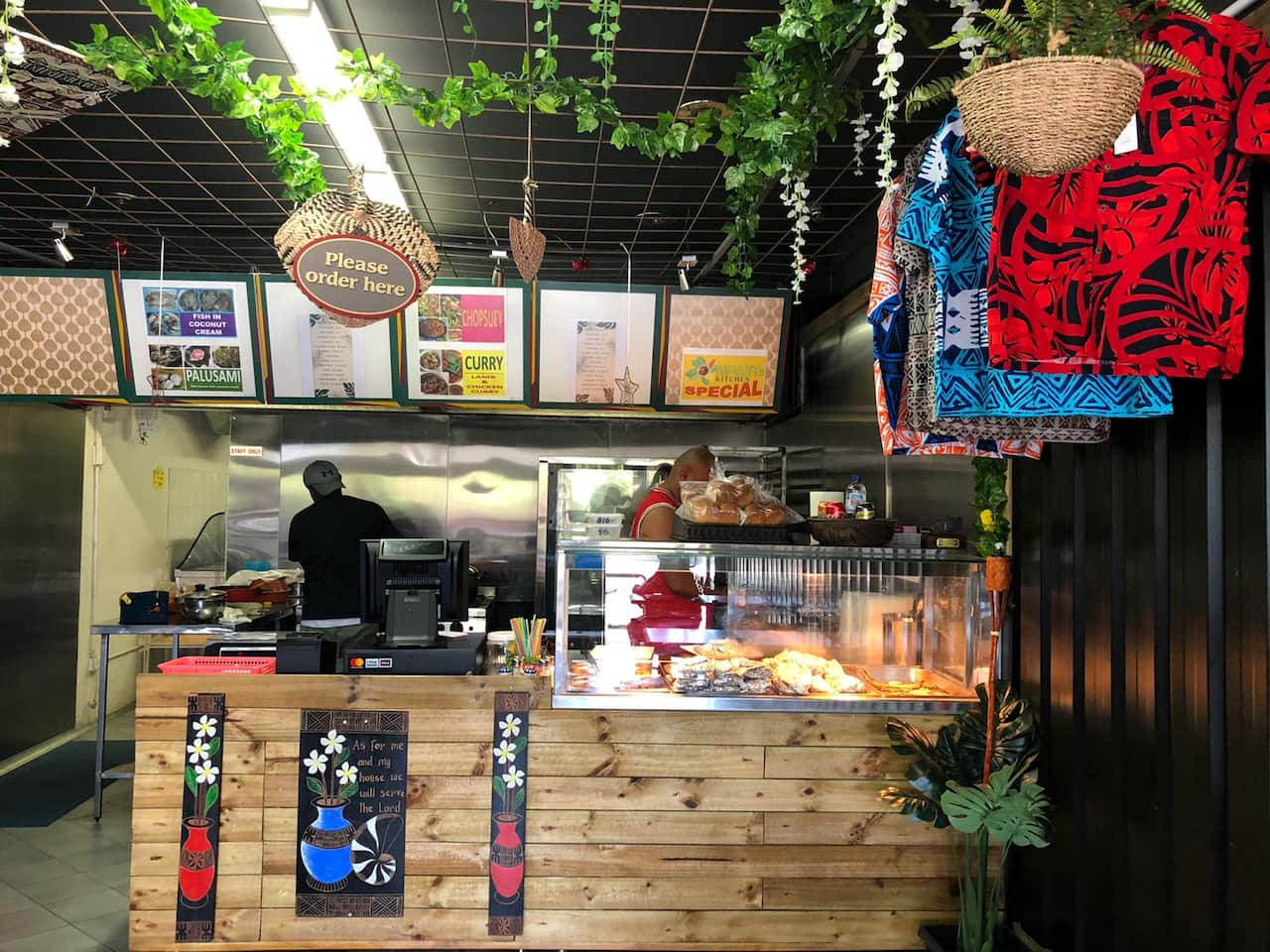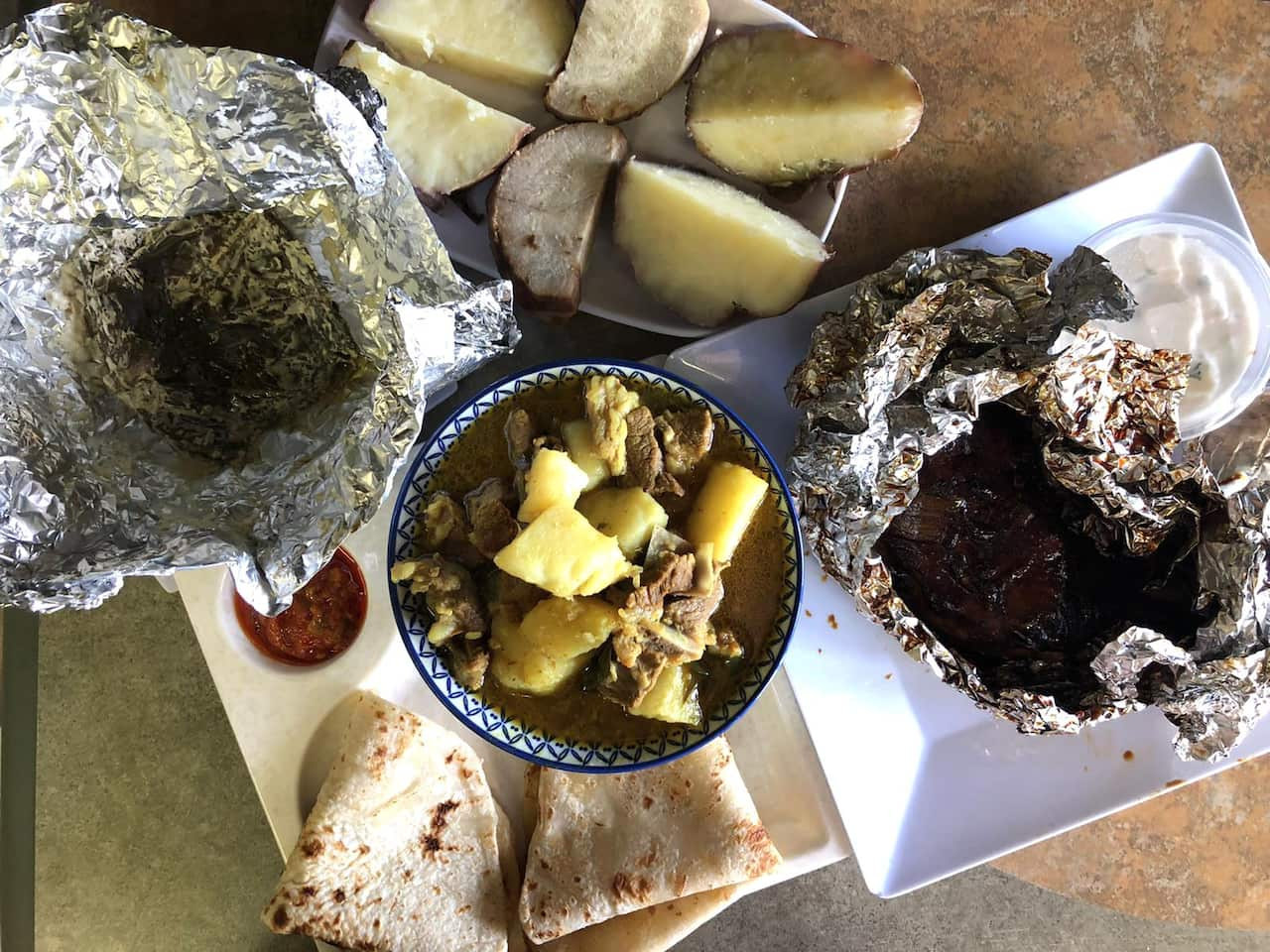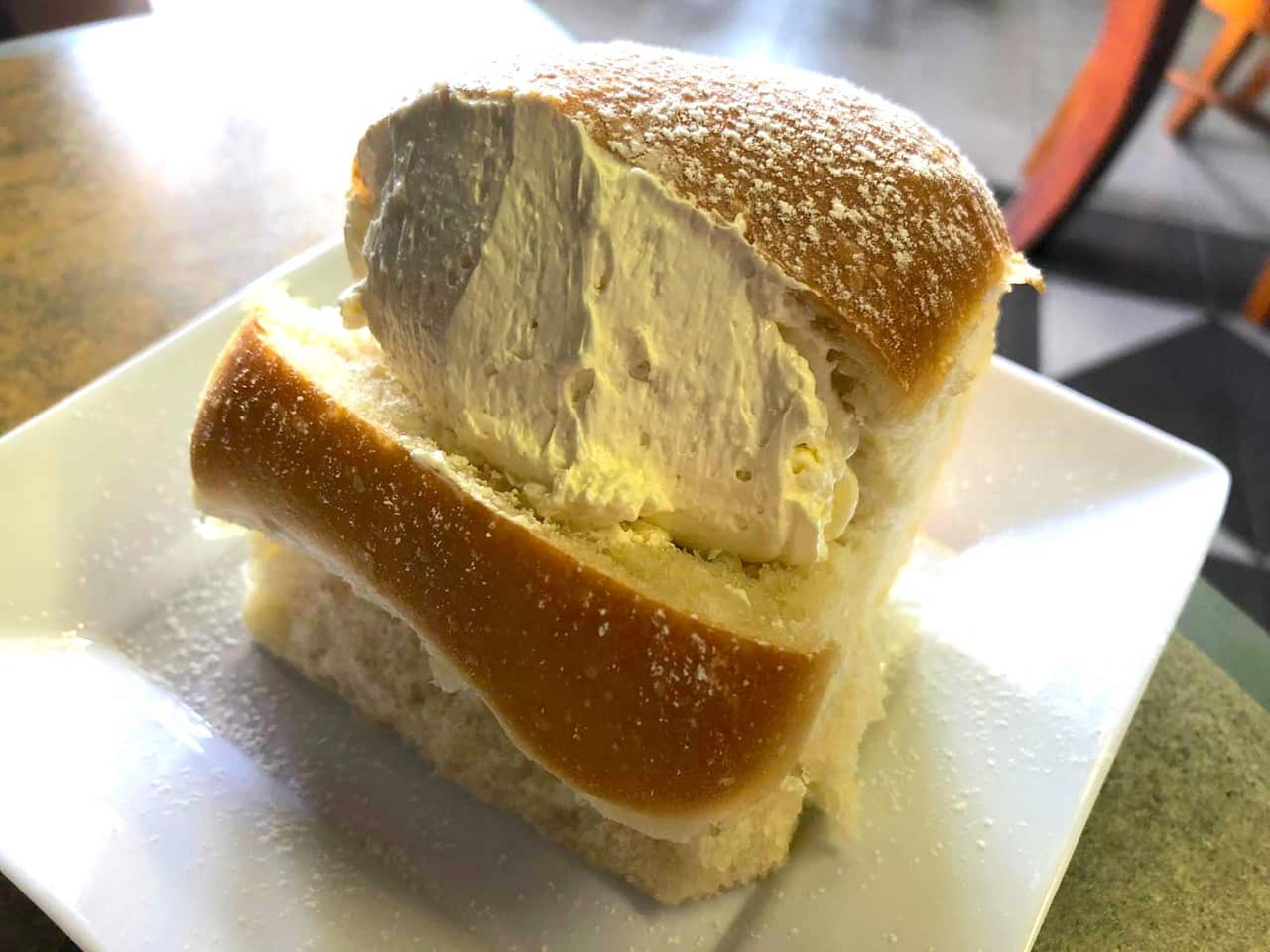Sydney might be home to a large community of Pacific Islanders, but there are only a handful of restaurants that serve food synonymous with their roots.
Even when they do, it's not what Pete Waqa describes as "native Islander food".
It was one of the main reasons why he and his wife, Seni, decided to open Island Feast, a casual eatery dedicated to cooking home-style Pacific Island dishes.
Waqa tells SBS Food, "We started Island Feast because there are so many Pacific Islanders in the Sydney region and we want them to experience the taste of the Pacific right here.
"Rather than having to go back home, we're trying to bring the taste to them."

Waqa, who relocated to Sydney from Fiji just over a year ago, reveals the other reason for opening the eatery was to pay homage to his late mother.
"She was not able to come here and see [the restaurant] so I did this for her. She had lived in Sydney for 25 years. My mum loved to cook and bake," he says.
The menu at Island Feast changes daily. Customers are notified through the Island Feast Facebook page or by popping into the restaurant but they can also peer through the food display cabinet to see what is on offer.
It rotates and ranges from chop suey to chicken or lamb curry served with house-made roti. Fried fish, topped with tomato and greens before its dressed with lolo (coconut cream), is another regular dish.
Waqa says the menu samples different dishes from the Pacific Islands: from Samoa to the Cook Islands and Tonga, as well as New Zealand and Fiji.
Rather than having to go back home, we're trying to bring the taste to them.
"For instance, the Tongans love coconut cream, so we use a lot of it in our dishes, while chop suey is very popular with Samoans," he says.
But the main star at Island Feast, and Waqa's personal favourite, is lovo.

"In New Zealand, it's called hangi. In Samoa, it's umu but if you're Fijian, it's lovo. It's a traditional style of cooking that uses an underground oven for cooking.
"It's a method we use to cook with all the time at home," he says.
Waqa explains how each serving – whether that's cassava, taro or chicken marinade in a "secret sauce" – are individually wrapped in foil, before being placed in the ground and hot stones, which are heated up using firewood, are used to cover the pit before it's cooked for 1.5 hours.
Dishes that are cooked using this traditional method are only served Thursday to Sunday and are accompanied by house-made coleslaw and kokoda, a ceviche-style dish where raw fish is marinated overnight in coconut cream, lime juice, coriander and chillies.
Palusami, taro leaves with coconut cream, is another dish cooked using the lovo.
Waqa's wife Seni says it's a dish that's often popular with vegetarians. "In Fiji, we sometimes have it with corned beef, or Tonga have it with lamb," she says.

To end the meal, Waqa suggests a cream bun, an unofficial Fijian baked good made famous by a well-known Fijian bakery, Hot Bread Kitchen, with a giant mug of tea.
As the name suggests, it's a slightly sweetened bun that's baked in house daily by Waqa using a recipe that was shared by his mother who had passed it on to Seni.
"If you go on holiday and ask for the cream bun, you'll find it everywhere," he says.
Also look out for Nana's kitchen special, panikeke (pancakes), a dish that Waqa fondly explains his mother made when he was younger.
Love the story? Follow the author here: Twitter @achanthadavong or Instagram @aimeech33. Photographs by Aimee Chanthadavong.
Island Feast
1/8 Hume Highway, Warwick Farm
Mon 9am–9pm, Tue to Fri 10am–9pm, Sat & Sun 7am–9pm
Takeaway orders for Island Feast are being personally delivered by the owner, Pete Waqa, and all orders can be placed by calling them directly.
SBS Food is a 24/7 foodie channel for all Australians, with a focus on simple, authentic and everyday food inspiration from cultures everywhere. NSW stream only. Read more about SBS Food
Have a story or comment? Contact Us

